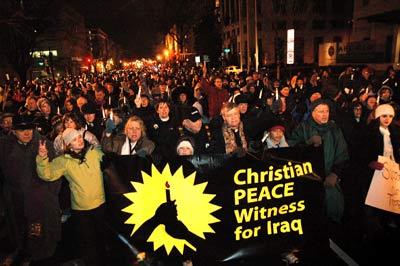While I was preparing for the weddings at the Inn this weekend, I listened to a story on All Things Considered about some people in Missouri going to a class to become storm spotters. The reporter began by talking about all the new technology NOAA has at its disposal and then went on to quote one of the meteorologists who said the best way to know about the weather was to talk to someone on the ground where it was happening. He went on to describe what he was trying to do in the class: “You do not have to attend this class to spot a mile-wide tornado producing 250-mph winds bearing down on Osage Beach. If I can put you in a position to identify the type of thunderstorm you’re dealing with before the storm produces its weather, in particular tornadoes, then we can save lives together.”
From my vantage point in front of the TV, being a meteorologist – at least the TV variety – seems like a great job. You get to play with some cool toys and you can be wrong fairly regularly and still get paid. In New England, they even get to hedge their bets on the high and low temperatures because of the variety of landscape. This morning one of them said, “The high today will be 41 to 46.” I often think of George Carlin doing Al Sleet, the “Hippy Dippy Weatherman”: “My apologies to the former residents of Pocatello, Idaho. That storm caught you folks napping, man.” Meteorology is by no means an exact science, yet we often look at the screen to see what the weather is rather than look out the window.
Beyond chill factors and heat inversions, the most difficult forecasts to make involve the weather of the heart. The internal tornadoes steal up stealthily and can do some serious damage. I spotted one tonight after work and spent the evening with the one caught in the turmoil. They would move around their apartment as if they were having an out of body experience, then plop down in the big leather chair and say, “What should I do?”
This past weekend on the retreat we looked at the story of Jesus’ healing of the man at the pool at Bethsaida. The guy had come everyday to the pool for thirty-eight years, hoping to be healed. But he could never get to the water first, since he was lame, so he had set himself up to lose. Before Jesus healed him, he asked a question: “Do you want to get well?”
It’s one of my favorite questions in the Bible and also another place where I wish the gospel writers has conveyed more of the tone in which the words were spoken. It could be asked like a truck stop waitress taking an order, a therapist waxing rhetorical, or a friend trying to figure out how to help. (I’m sure those are not all of the options.) What I hear in Jesus’ voice is informed compassion. He can see both the man’s pain as well as the way in which the man has set himself up to stay in pain. If he’d been at the pool for thirty-eight years, then a good bit of his identity was wrapped up in being the lame guy who never makes it to the water. To be healed would mean he was not that guy anymore after a lifetime of living that role. Did he want to get well?
One of the other stories we read was from Acts 3 where Peter and John encounter a different lame man begging at the city gate as they entered. “We don’t have any money,” Peter said, “but we’ll give you what we have. In the name of Jesus, get up and walk.”
When Ginger and I first moved to Boston, that story came to life in a new way. We were trying to help start a new church (and quickly learned neither of us is much of an evangelist). We, too, had very little money and also faced a pretty steep learning curve when it came to becoming a part of Boston life and culture. We talked about how we would finish the thought: we’ll give you what we have. In the name of Jesus . . .
The pain my friend is bearing is their story to tell, not mine. How I help bear the load is mine. The storm has been raging awhile, so there’s already a good bit of damage done. When they survey the wreckage, they feel worthless. “How many chances do you get before God gives up on you?” they asked.
I know the answer to this one experientially: “As many as it takes. God doesn’t give up.”
I meant the words when I said them and then realized the only reason I know they are true is because they were incarnated to me – someone let those words become flesh in my life. If my friend is going to believe them, I must inhabit them in the days (months?) to come. I can’t give up either. In the morning we are taking the first step together: I’m taking him to get help.
Whether the storm damage is irreparable to their family, job, and life is a question that won’t be answered quickly. Whether they want to get well, or are willing to do what it will take to get well is still up for grabs. But they said yes to going to get help tomorrow. In the name of Jesus, I can go and take them to where the help is.
I want them to get well, too.
Peace,
Milton

